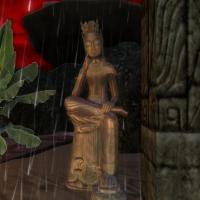-
Trouble With Thought

What we realize when we really tackle this subject of the brain, of thinking, is that we weren’t really paying attention. So we get panicky, we say “Well if my thoughts can be wrong, then how can I know?”. Because to trust we need to know, and we aren’t wrong. We do need to know.…
in
-
Give Place to Truth

Trust isn’t foolishness. Trust isn’t being a martyr or a sucker. Those come about when you don’t trust. When you perceive and then rationalize; “Well, maybe I’m wrong“, “Well, maybe they have changed“. Oh, the list of rationalizations is endless. If you trust you give place to the truth. You allow it to show itself…
in
-
Who Can We Trust?

Who can we trust? Your self when you know yourself. The problem is mostly people don’t know themselves. They know an idea of self. A role among other things and a prejudice, a judgement. We only have ideas of others, so is there no trust in others? For the most part. “Trust no one” is…
in
-
Deep Under Culture

Fully half of the worlds population has GABA as their dominant neurotransmitter. GABA is a regulatory hormone, which allows nerve impressions to feel stable. The dominant blood type in America is O, so there may be some tie. A common issue with GABA imbalance is anxiety disorders and excessive sense of guilt. So maybe there…
in
-
Bushido Values

Does superstition play a part in Bushido? In a sense, any tradition is a superstition. Does any belief survive? Because that is the literal meaning of superstition. Does any form of Bushido persist in modern Japanese society or is it all historical? Actually, yes. It doesn’t exist unmodified, but it is how the “do” disciplines…
in
-
Killing Outside Boundaries

In Bushido, murder meant killing outside of the boundaries of the order, a dishonourable killing. The acts of the Ninja were considered murder. To kill another in battle is ok? Yes, except for the weak or the unprepared. Thus why Ninjas were seen as so dishonourable. They held to a different creed. A sect of…
in
-
Bushido Philosophy

Bushido is a diverse body of philosophy, and it is strongly linked to the Japanese religion of Shintoism. Shintoism and Ma’at (the native religion of Egypt) are very similar. They are tied to the forces of nature and the land. Holding them sacred, but also having a sense of divine order and humans connection to…
in
-
Psychokinetic Systems

We don’t all link to the same psychokinetic systems. Some are very focused on the body. This is pretty common especially with women, and more narrowly mothers. Some are more connected to elemental forces. Something in their personal make up makes them connect with minerals, metal, and they often perform metal shaping in ways they…
Dragon Intuitive offers insights into spirituality, metaphysics and world belief to inspire you on your path. Read poetry, submit your poem, skim our thoughts and sign our guestbook. We hope you enjoy your visit.
Trending:
You can’t convince yourself your dreams are meaningless and have meaning in your waking experience.


This also seems descriptive for a type 3 indigo. I do have many of these traits that alternate but know…